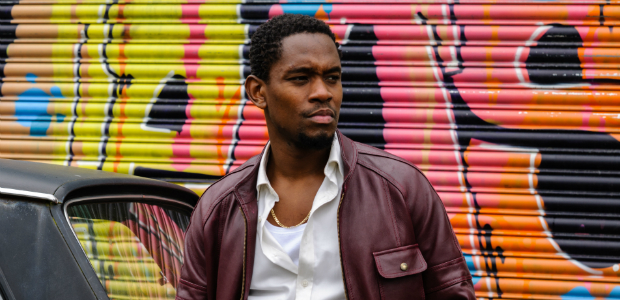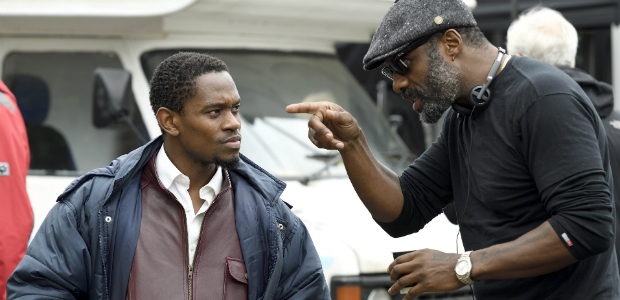
Nobody’s Baby Now
Brock Norman Brock on how Yardie was written for the screen.
Screenwriters don’t often get the chance to talk about a film. It’s a bit too much like asking the bride’s ex-boyfriend to give a speech at her wedding. Maybe if there’s dirt to be dished, there’s some prurient interest, but otherwise, why bring up the past? The film is the thing.
Still, there is a script. And for four years, Yardie, the film, existed only in my head. Just as, I suppose, there was a time before me and it was just Victor Headley and the book. The difference is, though, of course, that Victor’s book ‘Yardie’ still exists independently of the film, whereas my script, as with all scripts, has been subsumed (consumed?) by the film. This is not a complaint. Such is the way with scripts.
But what does irk is when reviews talk about ‘the script’ without ever having read it, as if you can somehow extract the script-as-written from the experience of watching the film. It is not simply a matter of the changes that a director inevitably makes in the flow of shooting (not to mention what other writers bring with their drafts), as anyone who has ever made a film will know the relationship between the script-as-written and the film-as-filmed is complex, and, in practice, suggestive more than prescriptive. Not a blueprint, not an outline simply to be ‘coloured in.’ If it were, then the director would be nothing more than the person who says to the actors, ‘Stand there and speak louder.’

While I had a certain amount of time and a lot of respect for what Victor intended, it wasn’t about what he thought anymore. To be blunt. It was about what I saw in the story. It was with me now.
It’s not dissimilar to the idea that people can have that adapting a book is nothing more than taking all the dialogue in the book and ‘writing it out’ into a script. (It’s been said to me. Albeit by the same person who, seeing the teetering piles of books stacked against my office wall also said, ‘look at all the books you have to read!’) But for those four years when it was just me and the script, Victor was the ex, not me. Now, I’m a nice guy (or nice enough, anyway), and while I had a certain amount of time and a lot of respect for what Victor intended, it wasn’t about what he thought anymore. To be blunt. It was about what I saw in the story. It was with me now.
The character of Jerry Dread- D’s murdered older brother who was once a yardie before seeing the light and becoming a rastafarian- is mentioned in the book only in a couple of pages. For Victor, it was obviously important– he put it in the book, after all, even if only in the deep backstory– but for me, my first instinct and the very first thing I saw was that this- the relationship between D and Jerry Dread- was the heart of the story. It encapsulated everything. And so this is where I went with it. The story- with me- wasn’t a Scarface-style rise and fall in the drugs world, it wasn’t a gritty, hard-hitting exposé of ‘gang war hit[ting] London- yardie style!’ (as it says on the cover of the paperback). It was a story of good versus evil, it was the story of a young kid learning the truth of his own origin myth and having to face the same difficult choice as his brother faced: which way yu gw’aan go?
And from that thought, other thoughts followed. I remembered John Sayles’ Brother From Another Planet and imagined London through D’s newly arrived eyes, a cold, harsh alien world and Jamaica the lush, green homeworld from which he has been exiled. And though I am no expert, I knew enough to know how intrinsic not just the spiritual but the supernatural is to Caribbean culture– hoodoo and vodou and santería and duppies and Nine Nights and all the different syncretic religions that came out of the Atlantic slave trade– and all of these elements began to come together in my head into something more Star Wars than The Harder They Come, a cosmological battle between the Light and the Dark side, but entirely within a Jamaican cultural context.

What does irk is when reviews talk about ‘the script’ without ever having read it, as if you can somehow extract the script-as-written from the experience of watching the film.
But now I am in danger of going on too long about the bride’s past at her wedding (not to mention over-extending the metaphor.) If we can say that a person is but the sum of all of the relationships he or she has had, perhaps then so too with a story (can we say then that a person is a story? Sure, what the hell. Why not?) When I look at the film Idris has made, of course I can recognise scenes filmed just as I saw them in my head when writing them- like memories of a once shared past- and of course there is the initial shock of what is not there and what is new- as I’m sure also with Victor reading my script- but more than anything else, there’s a kind of joy at seeing the story come to life in ways— not that I didn’t imagine — but that I couldn’t have imagined back when I was writing my script. It’s bigger than me.
And yet I’m part of it. The story is sum of all its relationships– with Victor, with me, with Martin Stellman, who co-wrote after me, with Idris, of course, but with the actors, too (not to mention the editor, the cinematographer…) and, ultimately, with the audience. It’s beautiful. You got to love what you write, but what you love, you got to let go. Wish it every happiness in its new relationship. Let someone else love it, too.
Yardie is screening as part of Sundance London.







COMMENTS